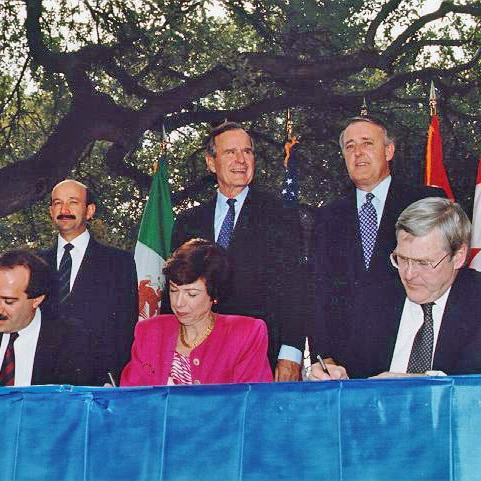
Canada is formally demanding, in talks on a new NAFTA agreement, that any such pact force the U.S. to eliminate so-called right-to-work laws.
During the 2016 U.S. campaign, GOP presidential nominee Donald Trump labeled NAFTA “the worst trade pact ever signed” and vowed to dump it. That promise helped him gain a 50-50 split among unionists and their families in key Great Lakes industrial states. By narrowly carrying Ohio, Pennsylvania, Michigan and Wisconsin, Trump wound up in the White House.
But once there, he decided to renegotiate, not dump, NAFTA, with what he says is the objective to help U.S. workers. The current NAFTA hasn’t. U.S. unions say Trump has adopted only a few pro-worker NAFTA negotiating goals, out of a 47-page detailed list presented during pre-talks hearings.
Instead of Trump, Canadian negotiators have begun pushing hard to eliminate U.S. based right to work laws which have served to deteriorate wage rates and living standards for workers in the United States. This has in turn harmed workers in Canada as well, along with those in the free to bargain states, where employers have used the existence of lower right to work labor standards to drive down wages and benefits for working families.
Related News
- New CSX conductor improvises to save a life
- SMART stands with Kilmar Armando Abrego Garcia
- Minnesota sheet metal worker: “I’m proud to be union”
- SMART News: Protecting Railroad Retirees’ Future
- More Than a Story: SMART-TD’s Women’s History Month Highlights Legacies in the Making
- SMART condemns executive order undermining collective bargaining rights
- Tentative Agreement Reached in Boston
- Local Chair Fights for His Members, and Now, a Title
- Nevada railroaders: ACT NOW to help pass a railroad safety bill
- Legislative win means more money for disabled rail workers in New Jersey